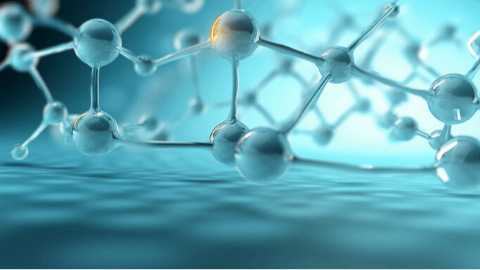预约演示
更新于:2025-05-07
D1 receptor
更新于:2025-05-07
基本信息
别名 D(1A) dopamine receptor、Dopamine D1 receptor、dopamine receptor D1 + [2] |
简介 Dopamine receptor whose activity is mediated by G proteins which activate adenylyl cyclase. |
关联
112
项与 D1 receptor 相关的药物作用机制 5-HT2 receptor拮抗剂 [+3] |
在研机构 |
原研机构 |
非在研适应症 |
最高研发阶段批准上市 |
首次获批国家/地区 美国 |
首次获批日期2021-05-28 |
作用机制 D1 receptor拮抗剂 [+2] |
在研机构 |
原研机构 |
在研适应症 |
最高研发阶段批准上市 |
首次获批国家/地区 美国 |
首次获批日期2003-12-24 |
作用机制 D1 receptor拮抗剂 [+1] |
在研机构 |
原研机构 |
非在研适应症- |
最高研发阶段批准上市 |
首次获批国家/地区 中国 |
首次获批日期1995-01-01 |
344
项与 D1 receptor 相关的临床试验NCT06740890
A Proof of Concept Study of Time Limited Exercise Plus Olanzapine-samidorphan for the Prevention of Early Weight Gain
This is a single site trial in 30 patients with schizophrenia, schizoaffective, or bipolar I/II/NOS disorder in which all participants will receive eight weeks of olanzapine and samidorphan (Olz/Sam) plus four weeks of aerobic exercise.
开始日期2025-05-01 |
NCT06895356
A Phase 1, Two Part, Randomized, Single and Multiple Dose Crossover Study to Assess the Relative Bioavailability Between Tavapadon Clinical and Commercial Tablets
This study will assess the relative bioavailability of two different Oral formulations of tavapadon in healthy adult participants.
开始日期2025-03-26 |
申办/合作机构 |
NCT06786286
A Phase 1, Open-label Study to Assess the Mass Balance, Metabolism, Excretion and Pharmacokinetics of a Single Subcutaneous Dose of [14C]-ITI-1284 in Healthy Male Subjects
ITI-1284-012 is an open-label, single-dose study to assess the mass balance recovery of radioactivity, and to evaluate the pharmacokinetics, safety and tolerability of ITI-1284 after a single subcutaneous dose of [14C]-ITI-1284 in healthy male subjects.
开始日期2025-01-28 |
100 项与 D1 receptor 相关的临床结果
登录后查看更多信息
100 项与 D1 receptor 相关的转化医学
登录后查看更多信息
0 项与 D1 receptor 相关的专利(医药)
登录后查看更多信息
6,884
项与 D1 receptor 相关的文献(医药)2025-06-01·Journal of Neuroimmunology
Gut microbiome depletion modulates cocaine-induced behavioral and transcriptional responses in female mice
Article
作者: Zeldin, Sharon M ; Shipman, Ava L ; Osman, Aya ; Hofford, Rebecca S ; Lucerne, Kelsey E ; Koperska, Marta ; Dave, Yesha A ; Kiraly, Drew D
2025-06-01·Poultry Science
The interplay of oxytocin and dopaminergic system: Effects on food consumption in broiler chickens
Article
作者: Zarei, Hamed ; Hasani, Keyvan ; Sharafinezhad, Mobina
2025-05-01·Neuroscience & Biobehavioral Reviews
From valence encoding to motivated behavior: A focus on the nucleus accumbens circuitry
Review
作者: Rodrigues, Ana João ; Soares-Cunha, Carina ; Vieitas-Gaspar, Natacha
39
项与 D1 receptor 相关的新闻(医药)2025-03-24
·医药观澜
▎药明康德内容团队报道
今日(3月24日),中国国家药监局药品审评中心(CDE)官网最新公示,恩华药业1类新药NH140068片获批临床,拟开发治疗精神分裂症。根据恩华药业公告,NH140068是一款适于口服的多种神经递质受体激动剂,为新一代治疗精神分裂症的创新药。本次是该产品首次在中国获批临床。
截图来源:CDE官网
精神分裂症作为一种常见的严重精神疾病倍受关注。根据世界卫生组织(WHO)数据[3],全球范围内约有2400万人正遭受着精神分裂症的折磨,即每300人中就有1人患有精神分裂症(0.32%)。尽管当下一些疗法可以有效控制某些症状,但仍有很大一部分患者对现有疗法无效,或出现不可接受的副作用。
NH140068片是恩华药业内部自主研发的1类新药。临床前试验结果表明,它可以激动多巴胺、5-羟色胺和痕量胺的相关受体,具有改善精神分裂症阳性和阴性症状且副作用小的潜力。
精神分裂症新药开发难度大,失败率高,研发界一直期待能够在这一领域有新的突破。好消息是,随着科学研究的进展,这一领域已经迎来了诸多有希望的进展。公开信息显示,目前有十多款在研新药正在中国开展针对精神分裂症的临床研究,作用机制涵盖M1/M4毒蕈碱乙酰胆碱受体激动剂、新型甘氨酸转运蛋白1(Gly-T1)抑制剂、TAAR1/5-HT2CR双靶点激动剂、强效mGlu2/3受体激动剂、5-HT2A受体拮抗剂和多巴胺受体调节剂、PDE10A选择性抑制剂等等。
除了本次获批临床的NH140068片,恩华药业还有多款处于临床阶段的精神分裂症在研药物。包括:NH300231肠溶片,这是一款5-HT2A受体拮抗剂和多巴胺受体调节剂,且对5-HT2A受体的拮抗活性明显高于多巴胺D2受体,同时能够抑制五羟色胺转运体活性;Lu AF35700/NHL35700,恩华药业与灵北公司(Lundbeck)合作开发的一款口服小分子药物,可靶向多巴胺受体、血清素受体和肾上腺素受体,对多巴胺D1受体的亲和力高于D2受体,其药理学机制有望减少锥体外系反应、高泌乳素血症等副作用的发生率;CY150112片,一款小分子药物(尚未披露靶点机制),于2020年在中国获批临床,开展精神分裂症的临床试验。
参考资料:
[1]中国国家药监局药品审评中心(CDE)官网. Retrieved Mar 24,2025, From https://www.cde.org.cn/main/xxgk/listpage/4b5255eb0a84820cef4ca3e8b6bbe20c
[2]恩华药业关于收到1类化学药品《药物临床试验批准通知书》的公告. Retrieved Mar 24,2025, From https://mp.weixin.qq.com/s/BqAQlz8tM60yQcaiToqbFA
[3]WHO官网. From https://www-who-int.libproxy1.nus.edu.sg/news-room/fact-sheets/detail/schizophrenia
本文来自药明康德内容团队,欢迎个人转发至朋友圈,谢绝媒体或机构未经授权以任何形式转载至其他平台。转载授权及其他合作需求,请联系wuxi_media@wuxiapptec.com。
免责声明:药明康德内容团队专注介绍全球生物医药健康研究进展。本文仅作信息交流之目的,文中观点不代表药明康德立场,亦不代表药明康德支持或反对文中观点。本文也不是治疗方案推荐。如需获得治疗方案指导,请前往正规医院就诊。
申请上市临床申请临床1期
2025-02-27
·药明康德
Emalex Biosciences日前宣布,主打在研疗法ecopipam在针对Tourette综合征的3期注册性临床研究中取得了积极的初步数据,达到主要和次要疗效终点。该公司将于今年晚些时候与美国FDA及其他全球监管机构会晤,讨论ecopipam用于治疗Tourette综合征患者的新药申请(NDA)提交。
该研究共招募了167例儿科受试者和49例成人受试者。研究中,在为期12周的开放标签期中接受ecopipam治疗后出现具有临床意义的声带及运动抽动(tics)减少的受试者,被随机分配到继续接受ecopipam或转为安慰剂治疗的为期12周的双盲撤药期。
主要疗效终点为儿科受试者随机化后复发所需时间。研究发现,接受ecopipam治疗的受试者中有41.9%复发,而接受安慰剂治疗的受试者中有68.1%复发。结果具有统计学显著性(p=0.0084),风险比为0.5(0.3–0.8)。
次要疗效终点为儿科和成人受试者随机化后复发所需时间。研究发现,接受ecopipam治疗的受试者中有41.2%复发,而接受安慰剂治疗的受试者中有67.9%复发。结果具有统计学显著性(p=0.0050),风险比为0.5(0.3–0.8)。
在研究中,ecopipam总体耐受性良好,最常见的与ecopipam治疗相关的不良事件为嗜睡(10.2%)、失眠(7.4%)、焦虑(6.0%)、疲劳(5.6%)和头痛(5.1%)。
Tourette综合征是一种慢性、儿童期发病的神经发育障碍,其特征为运动和声带抽动。该病与较高的死亡率及显著的发病率有关,大多数患者的日常生活及社交功能受到严重影响。
Ecopipam是一种潜在“first-in-class”化合物,其作用机制是阻断多巴胺在D1家族受体上的作用。多巴胺是中枢神经系统中的一种神经递质,其受体可被分为D1家族(包括D1和D5亚型)和D2家族(包括D2、D3和D4亚型)。D1家族受体超敏可能在Tourette综合征相关的重复性和强迫性行为中起到重要作用。
参考资料:
[1] Emalex Biosciences’ Lead Candidate Meets Primary and Secondary Endpoints in Phase 3 Tourette Syndrome Study. Retrieved February 26, 2025, from https://emalexbiosciences.com/news/emalex-biosciences-lead-candidate-meets-primary-and-secondary-endpoints-in-phase-3-tourette-syndrome-study/
内容来源于网络,如有侵权,请联系删除。

临床结果临床成功临床失败
2025-02-25
Emalex Biosciences plans to meet with the FDA and other global health authorities to discuss submitting ecopipam for approval later in 2025.\n Emalex Biosciences’ dopamine blocker led to fewer patients with Tourette syndrome relapsing in a phase 3 trial, setting the stage for the Chicago-based firm to submit the drug candidate for approval later this year.The phase 3 study enrolled 167 children and 49 adults, according to a Feb. 25 press release. After a 12-week open-label period, patients who experienced reductions in vocal and motor tics when given the drug were randomized to either continue receiving the drug, called ecopipam, or to switch to placebo for a further 12 weeks. This phase of the trial was double-blind.When continued on ecopipam, 41.9% of children had their symptoms relapse, defined as a 50% loss of the benefit they initially received from the drug in their Yale Global Tic Severity Score. This relapse rate was significantly lower than the 68.1% rate seen in children given placebo, Emalex said in the release. Time to relapse for the pediatric patients was the study’s primary endpoint.Emalex plans to meet with the FDA and other global health authorities to discuss submitting ecopipam for approval later in 2025, the firm said.The most common side effects of ecopipam were drowsiness, insomnia, anxiety, fatigue and headache, according to the release. About 10% of patients experienced drowsiness, also called somnolence, while 7% had insomnia.For the study’s secondary endpoint, Emalex analyzed the time to relapse for children and adult patients together. Here, the relapse rates were similar, with 41.2% of patients relapsing on ecopipam compared to 67.9% on placebo.The phase 3 study builds on Emalex’s prior phase 2 work, which found that ecopipam reduced tic severity by 30% after 12 weeks in 150 children and adolescents with Tourette syndrome.“These results strengthen our confidence in ecopipam as a potential first-in-class treatment for patients with Tourette syndrome,” Frederick Munschauer, M.D., Emalex’s chief medical officer, said in the release. The top-line data “show a statistically significant benefit for ecopipam in maintaining clinically meaningful reductions in vocal and motor tics for pediatric subjects with Tourette syndrome as compared to placebo.” Ecopipam blocks the D1 dopamine receptor, which has been implicated in the repetitive and compulsive behaviors that are characteristic of Tourette syndrome, according to the release. Approved therapies for the disease target the D2 receptor instead.Emalex raised a $250 million series D in 2022 to bring ecopipam into phase 3, a sharp increase in investor interest from the comparatively paltry $35 million series C that preceded it.The Windy City biotech was founded in 2018 by biotech incubator Paragon Biosciences.Swiss biotech Noema Pharma had a Tourette win of its own late last year, when its PDE10A inhibitor gemlapodect—originally developed by Roche—reduced tic severity in a small phase 2 trial that enrolled 15 patients.

临床3期临床结果临床2期
分析
对领域进行一次全面的分析。
登录
或

生物医药百科问答
全新生物医药AI Agent 覆盖科研全链路,让突破性发现快人一步
立即开始免费试用!
智慧芽新药情报库是智慧芽专为生命科学人士构建的基于AI的创新药情报平台,助您全方位提升您的研发与决策效率。
立即开始数据试用!
智慧芽新药库数据也通过智慧芽数据服务平台,以API或者数据包形式对外开放,助您更加充分利用智慧芽新药情报信息。
生物序列数据库
生物药研发创新
免费使用
化学结构数据库
小分子化药研发创新
免费使用




